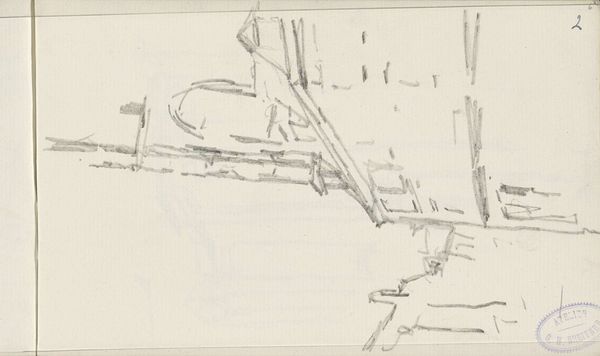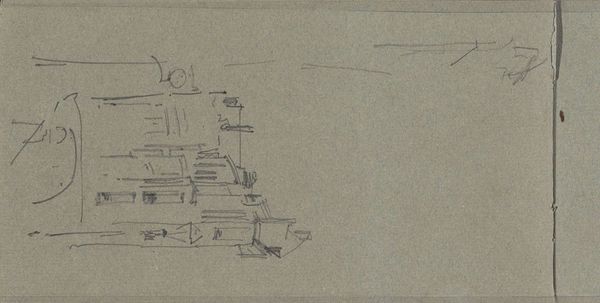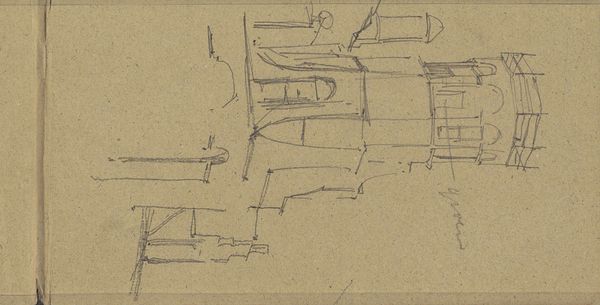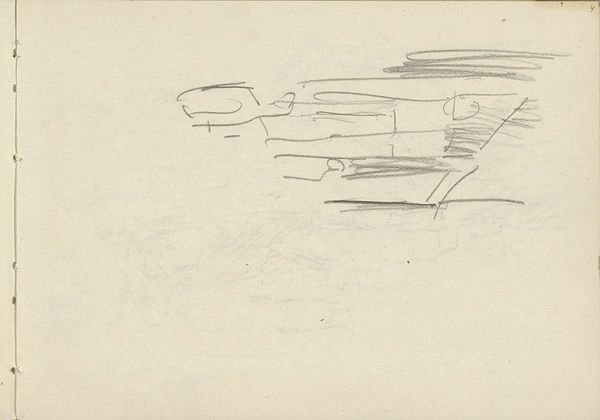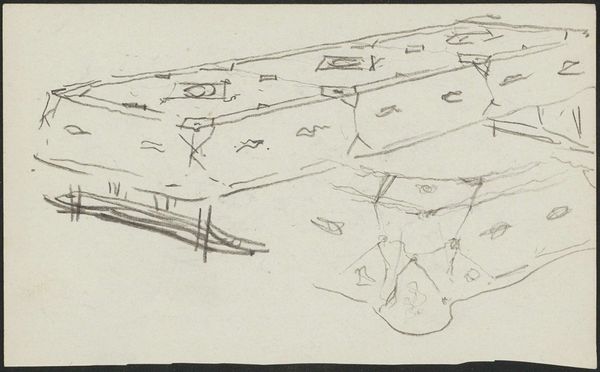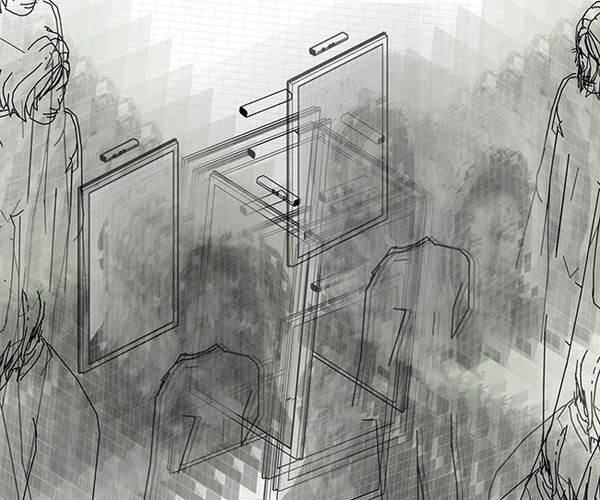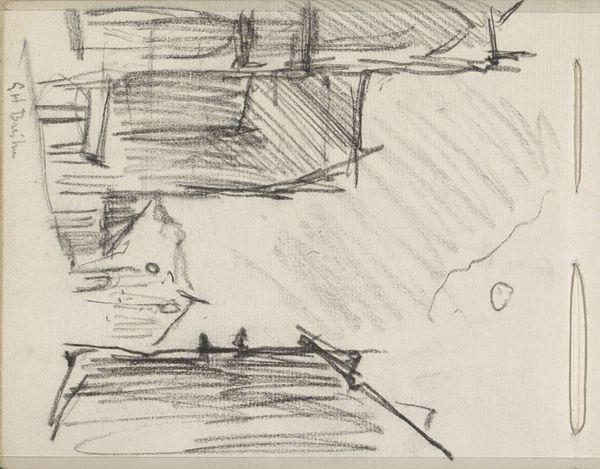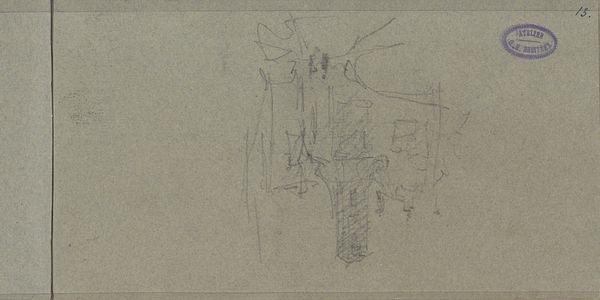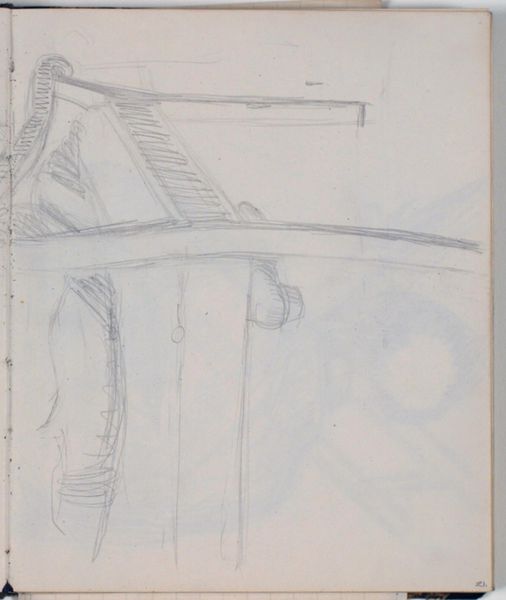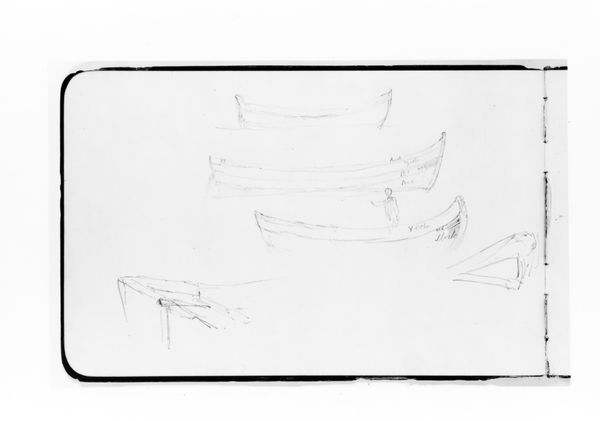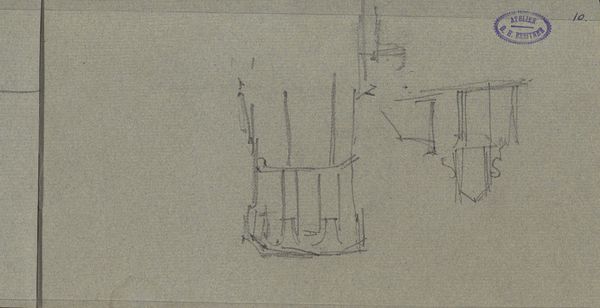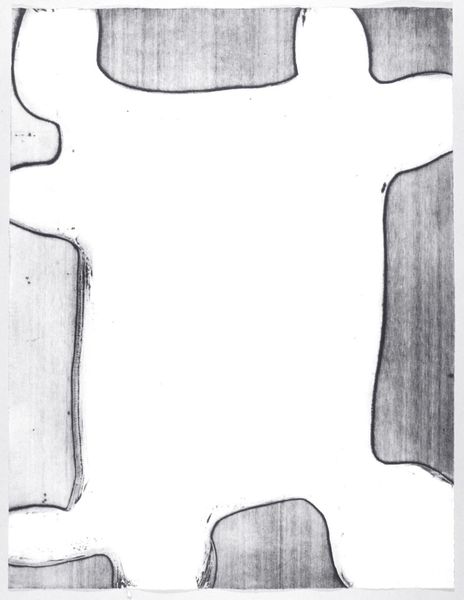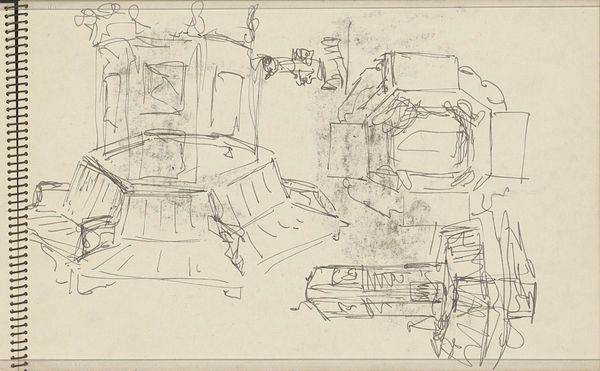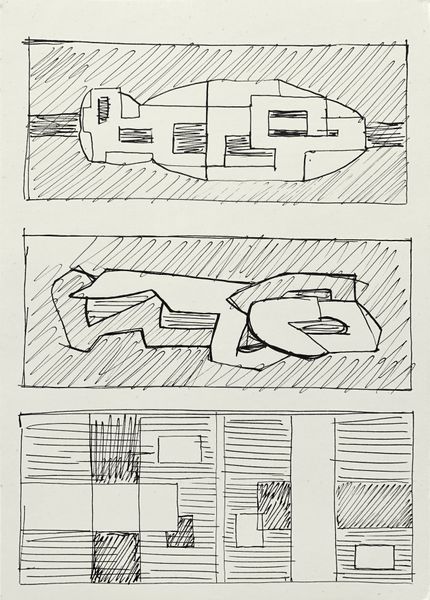
Dimensions: support: 1830 x 2440 mm
Copyright: © Edward Allington | CC-BY-NC-ND 4.0 DEED, Photo: Tate
Curator: Edward Allington's "Seated in Darkness" presents us with classical architectural fragments rendered in stark, almost clinical detail. Editor: My first impression is one of stark contrasts – the pristine, idealized forms juxtaposed against what appears to be a void, a collapse of the very ground beneath them. Curator: The classical motifs – the scrolls, the plinths – evoke a sense of established power and tradition, yet they are presented as ruins, destabilized. It brings to mind post-colonial critiques of Western hegemony. Editor: These fragmented forms retain their symbolic power. The scroll, for example, still speaks of knowledge and authority, even as it lies detached and isolated. There’s an almost melancholic beauty in their deconstruction. Curator: Absolutely. The darkness beneath can represent the erasure of histories and voices, the cost of maintaining these idealized forms of power. Who is seated in this darkness? Who is excluded? Editor: Perhaps the darkness is a reminder that all empires eventually fall, that even the most enduring symbols are subject to the passage of time and shifting cultural contexts. Curator: It is a potent reminder to critically examine the foundations upon which we build our own narratives. Editor: Indeed, it invites us to contemplate what remains when the structures we thought were permanent begin to crumble.
